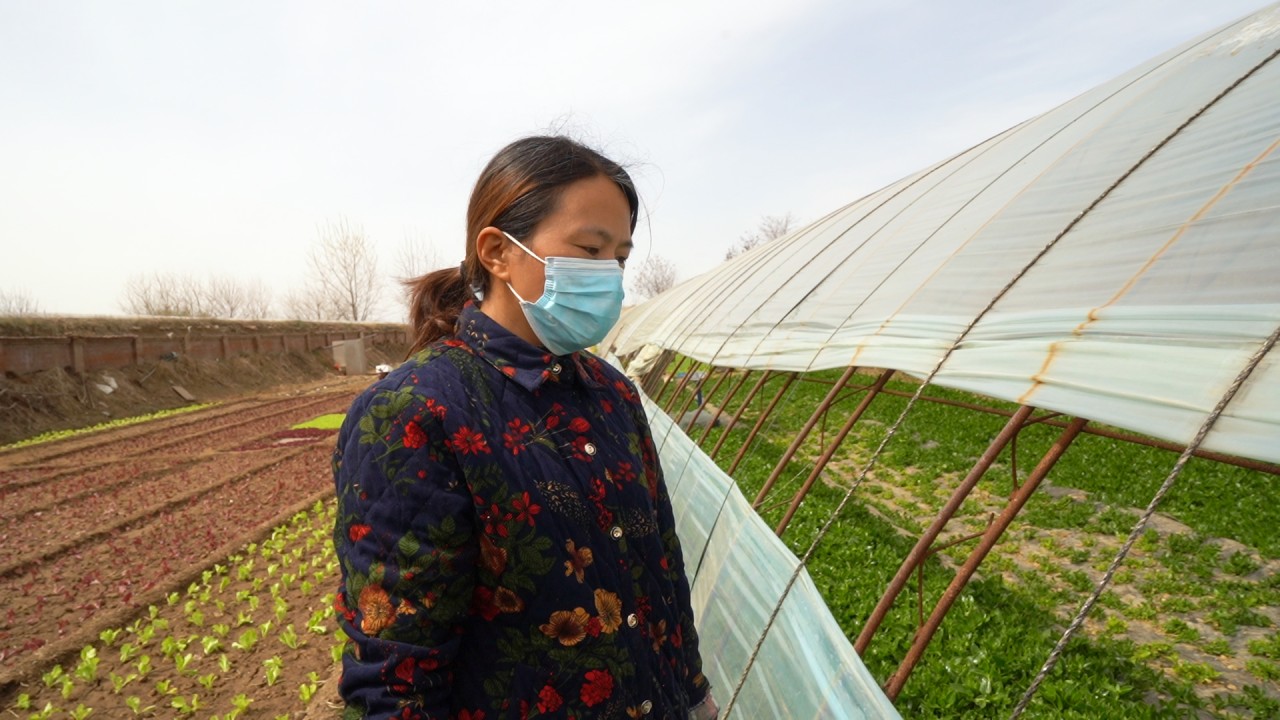
05:02
Coronavirus backlash further fraying China’s ties to global economy

Exports of Australian oats and oatmeal, milk powder and almonds ran into import compliance trouble at Chinese ports last year alongside beef shipments, customs data shows, as concern grows that Beijing may expand restrictions on Australian goods.
Chinese commerce minister Zhong Shan on Monday reiterated that Beijing’s investigation into the dumping of Australian barley was thorough and complied with the terms of the China-Australia Free Trade Agreement (ChAFTA).
Beijing placed a 80.5 per cent tariff on all Australian barley imports last week and banned beef shipments from four Australian producers, following what it said was a failure of those products to meet import labelling and certification requirements over an extended period.
The measures have ratcheted up fears in Australia that more tariffs are on the way, and Chinese customs data from 2019, obtained by the South China Morning Post, shows there have been more Australian products with a history of import violations.

05:02
Coronavirus backlash further fraying China’s ties to global economy
China’s Customs Administration reported pest infestations in large batches of oat and oatmeal exports by CBH Group, Australia’s largest grain exporter, last year.
Two lots of oatmeal exports in May weighing more than 500,000kg each, a 540,000kg shipment of oats in June, and a 570,000kg delivery of oats in September were all stopped from entering the country when they arrived at the southern Chinese cities of Shenzhen and Shantou.
In addition, one contaminated shipment of oatmeal, weighing nearly 3,000kg, from Australian cereal specialist Sanitarium was blocked from delivery in Nanjing in January 2019.
Another small 50kg shipment of instant oatmeal from Quaker Oats Australia was rejected at Huangpu port in Shanghai in January after it was found to be tainted.
Chinese officials are said to be mulling a new list of potential goods including wine, dairy, seafood, oatmeal and fruit to face stricter quality checks, anti-dumping probes, tariffs or customs delays, Bloomberg reported.
China’s foreign ministry has refused to answer questions about the reported list, but spokesman Zhao Lijian said last week that he hoped Australia would cooperate with China to create “actions that are conducive to bilateral relations and mutual trust”.
China’s move to slap export bans and tariffs on Australian beef and barley have raised suspicions Beijing is using technical requirements to punish Canberra for proposing an independent international inquiry into the coronavirus outbreak by the World Health Organisation, while urging China to “allow transparency”.
Data obtained by the Post showed the three beef exporting companies that ran afoul of import rules – Kilcoy Pastoral, JBS and Northern Cooperative Meat Company – had prior import labelling and certification offences in 2017, which resulted in a four-month ban at that time.

04:12
Are Xi Jinping’s China and Donald Trump’s US destined for armed conflict?
The companies committed offences again in 2019 when more than 6,000kg of beef failed to meet strict rules at Shanghai port on several occasions, according to the Chinese Customs Administration.
China has used trade as a diplomatic tool in the past, with the discovery of “harmful pests” used as a technical block last March on agriculture imports from Canada’s largest canola exporter, Richardson International.
The action was widely believed to be in retaliation for the Canadian government’s arrest of Meng Wanzhou, the chief financial officer of the Chinese telecommunications giant Huawei, on behalf of the United States.
On top of oats, oatmeal and beef, exports of Australian milk powder and almonds also ran afoul of Chinese import rules last year.

04:15
Chinese farmers see livelihoods threatened by coronavirus pandemic and related economic slump
Chinese customs found impurities in a 12,000kg shipment of infant formula milk powder from Australian Dairy Park last March, and mislabelling of infant milk formula by manufacturer ViPLUS Dairy in a 1,300kg consignment in December.
Two shipments of almonds weighing more than 20,000kg in March from Olam Orchards Australia were found to have mildew, which had been a prior issue with their macadamia and almond shipments to China last October.
None of the companies mentioned in this story responded to a request for comment on the import violations.
Trade tensions with China remain a concern for Australia, the world’s most China-dependent developed economy.
Australian trade minister Simon Birmingham said China’s recent moves could hurt both economies if not reconsidered.
“China’s been a country with which we've seen strong trade growth, especially in recent years, but so too are we seeing with many others,” trade minister Simon Birmingham told the Queensland Rural Press Club on Thursday. “And we should also be mindful that the trade benefits that flow between Australia and China are mutual benefits.”
Birmingham said the ChAFTA had fuelled much of China's industrial capacity in recent years, helping lift hundreds of millions of people out of poverty in China and Southeast Asia.
Speaking at his press conference on Monday, Zhong said Australian dumping had “severely hurt” China’s barley sector.
“China is cautious and restrained in taking trade remedy measures,” the foreign ministry spokesman said. “Since China and Australia established diplomatic relations, China has conducted only one trade investigation against Australia, while Australia has launched 100 investigations against China during the same period.”
On a positive note, Birmingham said he hoped trade between the two nations would improve, especially in iron ore, after China announced a reduction in quarantine inspections.
With additional reporting from Orange Wang.